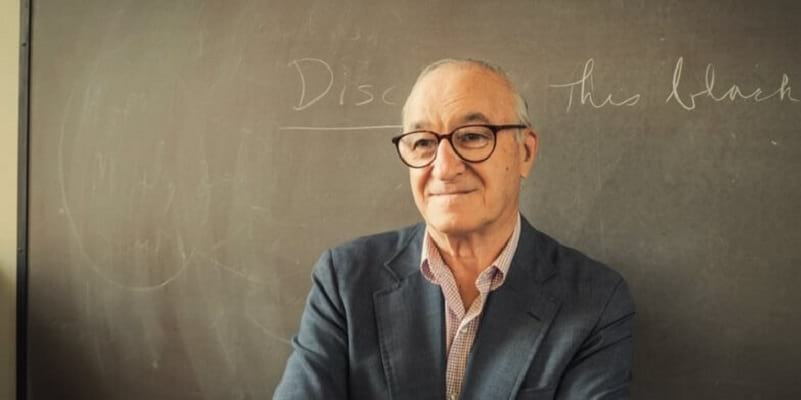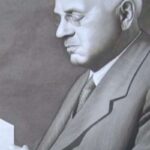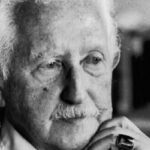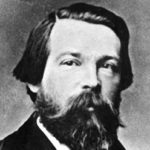Albert Bandura biografie en quotes

Albert Bandura (1925) is een wereldwijd erkende psycholoog, auteur, en emeritus hoogleraar aan de Stanford University. Albert Bandura heeft waardevolle bijdragen geleverd op het gebied van psychologie, waaronder de sociaal cognitieve en persoonlijkheidspsychologie. Albert Bandura is bovendien de grondlegger van de sociale leertheorie, het ADDIE model en zelfeffectiviteit, en hij is bekend om het Bobo Doll-experiment.
Biografie Albert Bandura
Albert Bandura is geboren in Canada. Zijn ouders komen oorspronkelijk uit Polen en Oekraïne, en zijn beide geëmigreerd naar Canada. Hij heeft vijf broers, waarvan Albert Bandura de jongste is.
Toen hij jong was kreeg hij les op een kleine school in Canada. Hij zei dat er weinig onderwijsmiddelen zoals boeken op zijn school aanwezig waren. Dit dwong hem tot proactief werkgedrag om concepten te leren die hem het meest interesseerden. Albert Bandura was daarom persoonlijk verantwoordelijk voor zijn studievoortgang.
Hij maakte de middelbare school af en ging in 1946 naar de University of British Columbia om psychologie te studeren. Omdat Albert Bandura gemotiveerd was om te leren, was hij vaak al op school voordat de les begon. In die tijd nam Albert Bandura vroeg in de morgen extra lessen, voordat zijn normale lessen begonnen.
Hij keek vaak welke vakken hij kon volgen om de tijd door te brengen die hij te vroeg aanwezig was, totdat iemand op een dag vergat een vakkencatalogus terug te brengen.
Terwijl hij door de catalogus bladerde, vond Albert Bandura een vak op het gebied van psychologie. Vanaf dit moment leerde hij steeds meer over psychologie, en binnen drie jaar studeerde hij af met de Bolocan Award.
Albert Bandura vervolgde zijn studie daarna aan de University of Iowa in de Verenigde Staten, waar hij in 1951 zijn master in psychologie en in 1952 zijn PhD in klinische psychologie behaalde.
Na zijn afstuderen kreeg Albert Bandura een baan als professor aangeboden bij Stanford University. Hij nam het aanbod aan en werd in 1976 voorzitter van het departement psychologie. Albert Bandura werkte tot 2010 bij Stanford University. Vanaf 2010 werd hij emeritus hoogleraar.
Hij kreeg grote bekendheid na de uitvoering van het Bobo Doll-experiment. Het Bobo Doll-experiment was een onderzoek naar agressie waarbij Albert Bandura aantoonde dat kinderen leren door middel van observatie.
Als onderdeel van het experiment kregen kinderen een video te zien waarin een persoon agressief een plastic Bobo Doll aan het slaan en schoppen was. Deze kinderen moesten daarna in een kamer spelen waarin dezelfde Bobo Doll zich bevond. Dezelfde kinderen imiteerden het gedrag van de volwassene in de video en lieten onmiddellijk agressief gedrag zien en deden agressieve uitlatingen.
Albert Bandura noemde dit gedrag ‘observationeel leren’ omdat de kinderen niet werden gestimuleerd om de Bobo Doll pijn te doen, ze imiteerden slechts het gedrag dat ze zagen in de video.
In deze periode was er sprake van een toenemend aantal verwondingen bij kinderen die werden verwond als gevolg van imitatie van het gevaarlijke gedrag dat in televisiereclames te zien was. Het toenemende agressieve gedrag van kinderen werd een publieke zorg, en als gevolg daarvan raakten verschillende commissies, waaronder de Federal Trade Commission en de Eisenhower Commission, erbij betrokken.
Omdat Albert Bandura onlangs onderzoek had gedaan gerelateerd aan observationeel leren, werd hij uitgenodigd om voor de verschillende commissies een verklaring af te leggen. Zijn verklaring veranderde de manier waarop bedrijven hun advertenties op publieke mediakanalen mochten publiceren.
Albert Bandura was bovendien de eerste persoon die aantoonde dat de motivatie van een individu om dingen te doen, de moeite die het individu eraan besteedde, en het persoonlijke gevoel terwijl het individu het doet, allemaal voortvloeien uit het geloof van het individu in zijn eigen capaciteiten.
Zijn werk wordt gewaardeerd binnen de psychologie. Bandura werd daarom in 1974 ook verkozen tot voorzitter van de American Psychological Association, een organisatie die zich als doel heeft gesteld de psychologie als wetenschap te bevorderen.
Albert Bandura’s werk heeft invloed gehad op en bijgedragen aan de hedendaagse psychologie.
Hij heeft verschillende onderscheidingen ontvangen, zoals de National Medal of Science, Amerika’s hoogste onderscheiding voor prestatie en leiderschap in het bevorderen van de wetenschap, die hij in 2015 ontving van Barack Obama.
Maar ook de APA Outstanding Lifetime Contribution to Psychology in 2004 en de University of Louisville Grawemeyer Award for Psychology in 2008, voor zijn werk op het gebied van zelf-effectiviteit en cognitieve theorie.
Het werk van Albert Bandura is vele malen gepubliceerd in wetenschappelijke tijdschriften, waaronder de Journal of Social Clinical Psychology, Applied Psychology en Media Psychology. Hij heeft verschillende boeken geschreven en vanwege zijn bijdragen op het gebied van psychologie, is hij door Review of General Psychology erkend als een van de meest vooraanstaande psychologen van de 20e eeuw.
Bekende quotes
- “In order to succeed, people need a sense of self-efficacy, to struggle together with resilience to meet the inevitable obstacles and inequities of life.”
- “Fortunately, most human behavior is learned observationally through modeling from others.”
- “Given appropriate social conditions, decent, ordinary people can be led to do extraordinarily cruel things.”
- “People’s beliefs about their abilities have a profound effect on those abilities. Ability is not a fixed property; there is huge variability in how you perform.”
- “As we develop the moral aspect of our lives, we often adapt standards of right and wrong that serve as guides and deterrents for our conduct.”
- “It’s in our ability to selectively engage and disengage our moral standards, and it helps explain how people can be barbarically cruel in one moment and compassionate the next.”
- “Coping with the demands of everyday life would be exceedingly trying if one could arrive at solutions to problems only by actually performing possible options and suffering the consequences.”
- “Most of the images of reality on which we base our actions are really based on vicarious experience.”
- “Very often we developed a better grasp of the subjects than the over worked teachers.”
- “Some of the most important determinants of life paths arise through the most trivial of circumstances.”
Publicaties, boeken en journals van Albert Bandura
- 2017. Mechanisms of moral disengagement. In Insurgent terrorism, pp. 85-115. Routledge.
- 2014. Social cognitive theory of moral thought and action. In Handbook of moral behavior and development. pp. 69-128. Psychology Press.
- 2012. On the functional properties of perceived self-efficacy revisited.
- 2009. Social cognitive theory of mass communication. In Media effectspp. 110-140. Routledge.
- 2006. Toward a psychology of human agency. Perspectives on psychological science, 12, 164-180.
- 2006. Guide for constructing self-efficacy scales. Self-efficacy beliefs of adolescents, 51, 307-337.
- 2006. Adolescent development from an agentic perspective. Self-efficacy beliefs of adolescents, 5, 1-43.
- 2005. The primacy of self‐regulation in health promotion. Applied Psychology, 542, 245-254.
- 2004. Health promotion by social cognitive means. Health education & behavior, 312, 143-164.
- 2003. Role of affective self‐regulatory efficacy in diverse spheres of psychosocial functioning. Child development, 743, 769-782.
- 2003. Negative self-efficacy and goal effects revisited. Journal of applied psychology, 881, 87.
- 2002. Social cognitive theory in cultural context. Applied psychology, 512, 269-290.
- 2002. Selective moral disengagement in the exercise of moral agency. Journal of moral education, 312, 101-119.
- 2001. Social cognitive theory: An agentic perspective. Annual review of psychology, 521, 1-26.
- 2001. Self‐efficacy beliefs as shapers of children’s aspirations and career trajectories. Child development, 721, 187-206.
- 2000. Exercise of human agency through collective efficacy. Current directions in psychological science, 93, 75-78.
- 2000. Cultivate self-efficacy for personal and organizational effectiveness. Handbook of principles of organization behavior, 2, 0011-21.
- 1999. Social cognitive theory: An agentic perspective. Asian journal of social psychology, 21, 21-41.
- 1999. Self-efficacy pathways to childhood depression. Journal of Personality and social Psychology, 762, 258.
- 1999. Moral disengagement in the perpetration of inhumanities. Personality and social psychology review, 33, 193-209.
- 1998. Health promotion from the perspective of social cognitive theory. Psychology and health, 134, 623-649.
- 1997. Self-efficacy: The exercise of control. Macmillan.
- 1996. Multifaceted impact of self‐efficacy beliefs on academic functioning. Child development, 673, 1206-1222.
- 1996. Mechanisms of moral disengagement in the exercise of moral agency. Journal of personality and social psychology, 712, 364.
- 1995. Self-efficacy in changing societies. Cambridge university press.
- 1994. Social cognitive theory and exercise of control over HIV infection. In Preventing AIDSpp. 25-59. Springer, Boston, MA.
- 1993. Perceived self-efficacy in cognitive development and functioning. Educational psychologist, 282, 117-148.
- 1992. Exercise of personal agency through the self-efficacy mechanism. Self-efficacy: Thought control of action, 1, 3-37.
- 1991. Social cognitive theory of self-regulation. Organizational behavior and human decision processes, 502, 248-287.
- 1989. Regulation of cognitive processes through perceived self-efficacy. Developmental psychology, 255, 729.
- 1989. Human agency in social cognitive theory. American psychologist, 449, 1175.
- 1989. Effect of perceived controllability and performance standards on self-regulation of complex decision making. Journal of personality and social psychology, 565, 805.
- 1988. Organizational applications of social cognitive theory. Australian Journal of management, 132, 275-302.
- 1986. The explanatory and predictive scope of self-efficacy theory. Journal of social and clinical psychology, 43, 359-373.
- 1986. Social foundations of thought and action. Englewood Cliffs, NJ, 1986.
- 1986. Differential engagement of self-reactive influences in cognitive motivation. Organizational behavior and human decision processes, 381, 92-113.
- 1984. Recycling misconceptions of perceived self-efficacy. Cognitive therapy and research, 83, 231-255.
- 1983. Self-evaluative and self-efficacy mechanisms governing the motivational effects of goal systems. Journal of personality and social psychology, 455, 1017.
- 1982. Self-efficacy mechanism in human agency. American psychologist, 372, 122.
- 1982. Microanalysis of action and fear arousal as a function of differential levels of perceived self-efficacy. Journal of Personality and Social Psychology, 431, 5.
- 1981. Self-referent thought: A developmental analysis of self-efficacy. Social cognitive development: Frontiers and possible futures, 2001, 239.
- 1981. Cultivating competence, self-efficacy, and intrinsic interest through proximal self-motivation. Journal of personality and social psychology, 413, 586.
- 1980. Tests of the generality of self-efficacy theory. Cognitive therapy and research, 41, 39-66.
- 1978. The self-system in reciprocal determinism. American psychologist, 334, 344.
- 1978. Social learning theory of aggression. Journal of communication, 283, 12-29.
- 1978. Reflections on self-efficacy. Advances in behavior research and therapy, 14, 237-269.
- 1977. Self-efficacy: toward a unifying theory of behavioral change. Psychological review, 842, 191.
- 1974. Behavior theory and the models of man. American psychologist, 2912, 859.
- 1973. Aggression: A social learning analysis. prentice-hall.
- 1969. Relative efficacy of desensitization and modeling approaches for inducing behavioral, affective, and attitudinal changes. Journal of Personality and Social Psychology, 133, 173.
- 1969. Principles of behavior modification.
- 1965. Influence of models’ reinforcement contingencies on the acquisition of imitative responses. Journal of personality and social psychology, 16, 589.
- 1963. Vicarious reinforcement and imitative learning. The Journal of Abnormal and Social Psychology, 676, 601.
- 1963. Social learning and personality development.
- 1963. Influence of social reinforcement and the behavior of models in shaping children’s moral judgment. The Journal of Abnormal and Social Psychology, 673, 274.
- 1963. Imitation of film-mediated aggressive models. The Journal of Abnormal and Social Psychology, 661, 3.
- 1961. Transmission of aggression through imitation of aggressive models. The Journal of Abnormal and Social Psychology, 633, 575.
- 1961. Identification as a process of incidental learning. The Journal of Abnormal and Social Psychology, 632, 311.
Citatie voor dit artikel:
Zeeman, A. (2018). Albert Bandura. Retrieved [insert date] from ToolsHero: https://www.toolshero.nl/bekende-auteurs/albert-bandura/
Gepubliceerd op: 13/07/2018 | Laatste update: 27/03/2023
Wilt u linken naar dit artikel, dat kan!
<a href=”https://www.toolshero.nl/bekende-auteurs/albert-bandura/”>ToolsHero.nl: Albert Bandura</a>












